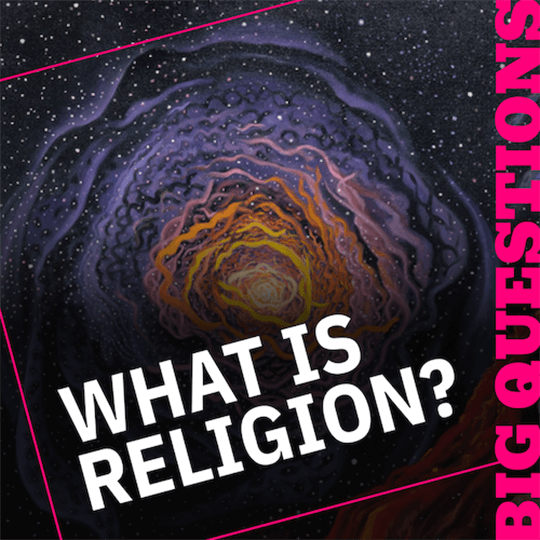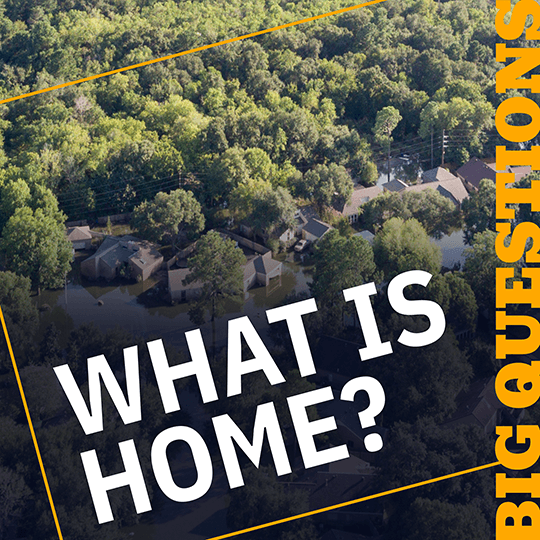At Rice University, the School of Humanities fosters an environment where students are encouraged to grapple with profound inquiries through its Big Questions courses, and anticipation is already building for the thought-provoking topics coming in fall 2024: “What Is Religion?” and “What Is Home?”
“Our Big Questions courses can often be a student’s entryway into humanities,” said Natasha Bowdoin, associate dean of undergraduate programs and special projects. “For students new to humanities-based work, they show how this framework is something not so distant after all but rather a way of thinking students embody every day. They serve as an excellent example of how a humanities-centered approach and methodology has continued applications and relevance to students’ lives and future careers, not to mention their success and well-being.”
The courses are crafted to encompass a diverse array of interests, providing students with invaluable tools for critical thinking and analysis inherent in a humanities education. By incorporating nontraditional approaches to assignments, collaborative group projects and opportunities to learn outside the classroom, merging humanities research and innovative pedagogy, the curriculum ensures a multifaceted and experiential approach to learning.
What distinguishes Big Questions courses is their ability to transcend boundaries, fostering an interdisciplinary exploration of complex themes. They serve as a testament to the breadth and depth of humanities education at Rice.
“The classes are meant to draw students from all over the university and get them into a room together to think through a question through the lens of humanities-based work and method,” Bowdoin said.
She explained that faculty members are encouraged to propose new Big Questions courses or revisit existing ones, ensuring a fresh and responsive curriculum.
“We want to tackle questions responsive to our contemporary moment, questions that bring with them a sense of urgency and need to be addressed,” Bowdoin said.
“What is religion?”
Students diving into Jeff Kripal’s discussion of “What Is Religion?” are poised to explore the essence of human belief systems and their intricate tapestry of narratives.

“Religions are stories,” said Kripal, the J. Newton Rayzor Professor of Religion. “They’re big stories that people live inside, and they imagine that it’s the only story and that it’s ultimately true for everyone. In fact, it’s not, and there are many such stories. So the big question of the course is: Do you have a religion or does a religion have you?”
In that way, the course will be more than an inquiry into doctrinal dogmas or theological intricacies; it will be an exploration of the very fabric of human existence. Kripal invites students to ponder the intricate interplay between myth, ritual, nature, science, sexuality, politics, violence, the miraculous, death and the afterlife.
“The comparative method that the whole course is based on is designed to kick you out of whatever worldview you’re in, including a secular or a scientific one,” Kripal said. “I’m as suspicious of the completeness of the scientific worldview as I am of any traditional religious worldview, because they’re all stories that people live inside for a time. Some are more useful than others for particular tasks for sure, but none are complete for all time. That’s the point.”
The interdisciplinary nature of religious studies will be a cornerstone of Kripal’s course this fall.
“You can approach religion from a political science angle, from a historical angle, from a textual angle, from a philosophical angle,” Kripal said. “This course will show that religion involves everything.”
“What is home?”
“What Is Home?” also reflects Rice’s commitment to fostering diverse intellectual inquiries. Drawing on disciplines ranging from urban history to cultural studies, the course invites students to critically engage with the concept of home from multiple perspectives.

“Home and housing is something so many disciplines across campus touch on in ways that are less obvious,” said Stephen Sherman, a research scientist for the Kinder Institute for Urban Research, who will teach the course alongside Claire Branigan, a lecturer in Rice Humanities’ Department of Modern and Classical Literatures and Cultures. “There are sociologists of housing, there are housing economists, there are people focused on real estate.”
Sherman also pointed to Rice’s School of Architecture, which is full of students who may one day design and build homes, and the George R. Brown School of Engineering, which is training students in structural and civil engineering.
“It’s a concept that I think really discretely crosses many of the disciplines in which Rice excels,” Sherman said.
At the heart of the course lies a commitment to interrogating the complexities of home, both locally and globally. Branigan, a cultural anthropologist, brings her expertise in gender-based violence and activism to the discourse, while Sherman, who specializes in housing research, offers insights into the lived experiences of home insecurity.
“We’re always kind of dancing around this notion of home,” Sherman said. “This course is a chance for us to explore these many dimensions of home alongside students.”
Through a nuanced exploration of Houston’s relationship with housing and home insecurity, students will confront the implications of calling this city home amid environmental catastrophes and social crises.
“I hope they leave with more questions than answers,” Branigan said. “I think that home is something that is really taken for granted sometimes, and I hope that this is a chance for students to really look at something in multiple new ways.”
Learn more about the fall 2024 Big Questions courses here.

